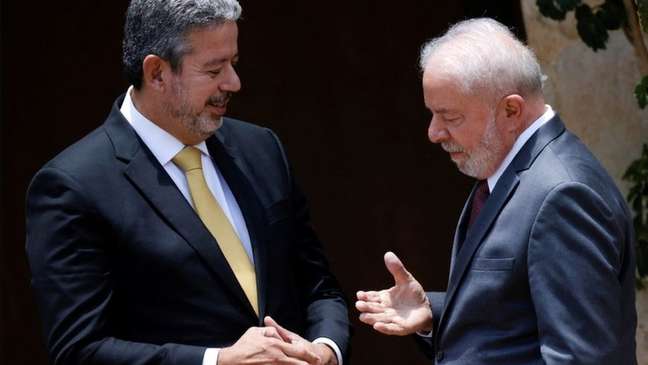How the progress of the proposal will test Lula’s political strength over the next four years

Considered strategic for the political and economic team of President-elect Luiz Inácio Lula da Silva (PT), the transitional PEC should start voting in the Chamber of Deputies this Tuesday (20/12).
Tasked with guaranteeing billions of reais of budget to the new government, the Transition PEC is also seen as a sort of “test” for the new Lula government: at stake are resources for Brazil Aid, programs deemed a priority by the new government and the ability of the new leadership to have its guidelines approved by the National Congress.
The proposed constitutional amendment (PEC), which has been dubbed the Transition PEC, is a measure devised by Lula’s allies which provides for an expansion of the ceiling on public spending, up to R$ 168.9 billion. The text has already been approved in two rounds in the Senate and should have been put on the agenda in the House last week.

What is the Transition PEC and what does it provide for?
The measure earned the nickname “PEC da Transição” because it was engineered by President-elect Lula’s allies during the transition between President Jair Bolsonaro’s government and the new administration that will take office on January 1, 2023.
- Expansion of the spending limit by 168.9 billion reais. This means that the government can spend up to BRL 168.9 billion for two years (2023 and 2024) above the current limit.
- Part of this amount will be used to pay the Auxílio Brasil of R$ 600 starting in January 2023 and an allowance of R$ 150 for each family with children up to six years old.
- The government can spend up to R$ 23 billion related to extraordinary collections on investments.
- The government will be able to use the R$ 168.9 billion margin opened in the budget due to the widening of the ceiling in other programmes. According to PT members, the Ministries of Education and Health will receive a portion of these funds.
The Transition PEC is considered important for the new Lula government because it allows it to fulfill its promise to maintain the value of the Auxílio Brasil without violating the Fiscal Responsibility Law (LRF) and the constitutional amendment that created the spending cap, which could generate possible impeachment requests.
Furthermore, with the enlargement of the expenditure ceiling for the disbursement of aid, the government will be able to use the space that will be opened up in the budget to recompose funds for other programs, such as popular pharmacies, as well as increase funds for school canteens. .
For the PEC to enter into force, it must be approved in two rounds by the Senate and the Chamber of Deputies. After that, it is enacted and there is no need to undergo presidential consent.
The Senate voted in two days thanks also to the action of the President of the Senate, Rodrigo Pacheco (PSD-MG), and of the rapporteur of the measure to the Constitution and Justice Commission of the Senate (CCJ), Alexandre Silveira (PSD-MG ).
Political prestige under control
Although it was approved in just two days in the Senate, the Transition PEC “stuck” when it arrived in the Chamber of Deputies, chaired by Arthur Lira (PP-AL), where it has been at a standstill for more than a week, prompting analysts to undermine the reputation as a skilled negotiator often attributed to Lula.
Among the factors held responsible for the delay in the vote on the PEC are the attempts by parliamentarians to keep the so-called “secret budget” intact and the alleged pressure exerted by Lira and other leaders of the Centrão for positions in the new Lula government.
Experts interviewed by BBC News Brasil last week said Lira and other parliamentary leaders were using the Transition PEC as a way to pressure the new government and Supreme Federal Court (STF) ministers not to interfere with the ‘secret budget’ .
“Secret budget” is the nickname given to amendments by the general rapporteur for the budget which allowed for the allocation of EU resources without full transparency as to who the parliamentarians were responsible for making the appointments. The mechanism was seen as one of the sources of Lira’s influence on MPs.
However, on Monday, the STF granted two decisions which, in the opinion of the experts, partially emptied Lira’s power over the drafting of the transitional certified email. In the first, Minister Gilmar Mendes allowed spending with Auxílio Brasil to be made outside the spending ceiling. This possibility is seen as the “heart” of the PEC.
In another decision, the STF judged the “secret budget” unconstitutional, ending, at least in theory, with the mechanism identified as one of the main sources of Lira’s influence on deputies.
In theory, the two decisions make Lula less dependent on Lira’s power to advance the Transition PEC.
But the experts interviewed by BBC News Brasil say that the difficulties encountered by Lula in carrying out the measure can be seen as a sampling of what he could face in the next four years: a sort of “test” of his capacity for political articulation .
For Denilde Holzhacker, professor of Political Science at the Escola Superior de Propaganda e Marketing (ESPM), the scenario imposed by Lira during the Transition PEC indicates that the relations between the Executive and the Legislative, from 2023, could be even more tense and should require even more skills from Lula.
The renewal rate of deputies in the Chamber of Deputies was 39%. Of the 513 elected, 219 will be “neophytes”.
The PL, President Bolsonaro’s party, was the one that obtained the largest seat, with 99 MPs. In the Senate, PL also had the largest group: 14 of the 81 senators. The PT won only nine seats.
“In 2023 there will be a major renewal in the Chamber of Deputies. The tendency is that there is a core of opposition to the Lula government, a Bolsonarista, greater than we have today. This should increase the resistance in Congress to the new government’s agenda” , says the teacher.
“This nucleus of opposition can create many obstacles for the new government”, adds Denilde.
Denilde works with the possibility that Lira will be re-elected to the presidency of the Chamber.
In addition to the support of part of the Bolsonarista constituency, Lira obtained the formal support of the PT for his re-election. The support was sewn by Lula and is seen as a way to avoid friction with the head of the legislative chamber.
Political science professor at the Getúlio Vargas Foundation (FGV), Marco Antônio Teixeira, agrees with his colleague.
“If there is not a well done calibration in this harmony between the government and Congress, the situation that is already bad now, could worsen in the future. Lula is known as a good negotiator, but the scenario is different now. It’s another juncture in which compared to his first two terms,” said the professor.
According to the professor, this harmony will pass through the negotiation of positions and spaces in the budget.
“Right now, there’s no other way to relate to Congress and its leaders,” says the professor.
Professor of Political Science at the Federal University of Minas Gerais (UFMG) Leonardo Avritzer, on the other hand, says that it is still too early to predict what relations between the Executive and the Legislative will be like and whether Lula’s political strength will be affected due to of the Transition PEC.
“We have to wait to see how this new constituency will behave. It is possible that the centre-right will join forces with the government to counter the advance of Bolsonarism. If this happens, the scenario will be one of greater stability,” he said.
He also says that another variable needs to be considered in this equation: the performance of the judiciary.
“We also need to see how the judiciary will act in the next few years. Today, for example, the position of the STF has been advantageous for Lula because it closed the secret budget and allowed Aid Brazil to stay outside the spending ceiling. I c ‘we need to know if he’s going to be that governance enabler for four years,’ the professor said.
Avritzer says judging by Lira’s performance so far, everything points to the government’s talks with Parliament, where the mayor has great influence, will take place on a one-to-one basis.
“Lira makes his articulations with each new vote. It is not possible to expect from him an alignment or even a misalignment with the government. Everything suggests that this will be a relationship to be negotiated on every agenda,” says the professor.
For the former group leader of the PT in the Chamber and federal deputy Carlos Zarattini (SP), the future of relations between the Government and the Legislature is not yet defined and the elaboration of the Transition PEC cannot be seen as a model of how the negotiations will.
“This will depend, in part, on how the MDB, PSD and other parties in the Centrão behave. The PL has a large bench, but it is divided. Which is made up of people willing to dialogue and negotiate politically,” said Zarattini.
The lawmaker said the new government must invest in forming a solid bench and not depend on the Supreme Court to resolve situations such as the payment of aid to Brazil.
“What we need is a big bench to support the government. There will be many more votes in the coming years. We cannot remain dependent on the judiciary,” he said.
– This text was published in https://www.bbc.com/portuguese/brasil-63883390
🇧🇷The best content in your email for free. Choose your favorite Terra newsletter. Click here!
Source: Terra
Camila Luna is a writer at Gossipify, where she covers the latest movies and television series. With a passion for all things entertainment, Camila brings her unique perspective to her writing and offers readers an inside look at the industry. Camila is a graduate from the University of California, Los Angeles (UCLA) with a degree in English and is also a avid movie watcher.






